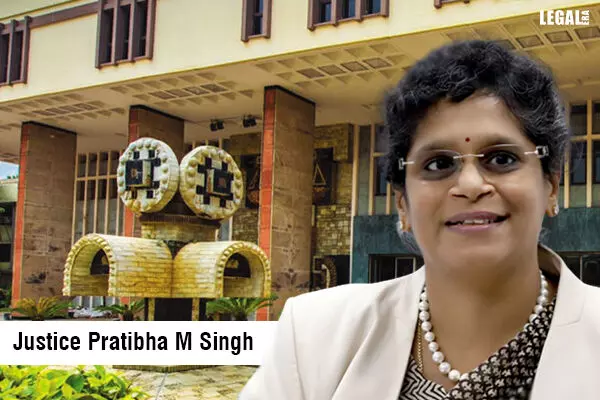- Home
- News
- Articles+
- Aerospace
- Artificial Intelligence
- Agriculture
- Alternate Dispute Resolution
- Arbitration & Mediation
- Banking and Finance
- Bankruptcy
- Book Review
- Bribery & Corruption
- Commercial Litigation
- Competition Law
- Conference Reports
- Consumer Products
- Contract
- Corporate Governance
- Corporate Law
- Covid-19
- Cryptocurrency
- Cybersecurity
- Data Protection
- Defence
- Digital Economy
- E-commerce
- Employment Law
- Energy and Natural Resources
- Entertainment and Sports Law
- Environmental Law
- Environmental, Social, and Governance
- Foreign Direct Investment
- Food and Beverage
- Gaming
- Health Care
- IBC Diaries
- In Focus
- Inclusion & Diversity
- Insurance Law
- Intellectual Property
- International Law
- IP & Tech Era
- Know the Law
- Labour Laws
- Law & Policy and Regulation
- Litigation
- Litigation Funding
- Manufacturing
- Mergers & Acquisitions
- NFTs
- Privacy
- Private Equity
- Project Finance
- Real Estate
- Risk and Compliance
- Student Corner
- Take On Board
- Tax
- Technology Media and Telecom
- Tributes
- Viewpoint
- Zoom In
- Law Firms
- In-House
- Rankings
- E-Magazine
- Legal Era TV
- Events
- Middle East
- Africa
- News
- Articles
- Aerospace
- Artificial Intelligence
- Agriculture
- Alternate Dispute Resolution
- Arbitration & Mediation
- Banking and Finance
- Bankruptcy
- Book Review
- Bribery & Corruption
- Commercial Litigation
- Competition Law
- Conference Reports
- Consumer Products
- Contract
- Corporate Governance
- Corporate Law
- Covid-19
- Cryptocurrency
- Cybersecurity
- Data Protection
- Defence
- Digital Economy
- E-commerce
- Employment Law
- Energy and Natural Resources
- Entertainment and Sports Law
- Environmental Law
- Environmental, Social, and Governance
- Foreign Direct Investment
- Food and Beverage
- Gaming
- Health Care
- IBC Diaries
- In Focus
- Inclusion & Diversity
- Insurance Law
- Intellectual Property
- International Law
- IP & Tech Era
- Know the Law
- Labour Laws
- Law & Policy and Regulation
- Litigation
- Litigation Funding
- Manufacturing
- Mergers & Acquisitions
- NFTs
- Privacy
- Private Equity
- Project Finance
- Real Estate
- Risk and Compliance
- Student Corner
- Take On Board
- Tax
- Technology Media and Telecom
- Tributes
- Viewpoint
- Zoom In
- Law Firms
- In-House
- Rankings
- E-Magazine
- Legal Era TV
- Events
- Middle East
- Africa
Delhi High Court rules against NCLT declaring IBC provisions ultra vires

Delhi High Court rules against NCLT declaring IBC provisions ultra vires
Even as there was no challenge to the regulations and the applicant sought more time to complete the CIRP process
The Delhi High Court has ruled that the National Company Law Tribunal (NCLT) cannot assume the power to declare any provisions of the Insolvency and Bankruptcy Code (IBC), 2016 or the Insolvency and Bankruptcy Board of India's (IBBI's) Insolvency Resolution Process for Corporate Persons Regulations, 2016, as illegal.
The bench of Justice Pratibha M Singh referred to the ruling of the National Company Law Appellate Tribunal (NCLAT) in the Mohan Gems & Jewels Pvt Ltd vs Vijay Verma & Anr case. Therein, it was observed that the need for judicial intervention or innovation from NCLT and NCLAT should be kept at its bare minimum. It should not disturb IBC's foundational principles.
Thus, passing aside NCLT's September 2018 order, the court clarified that no challenge was raised on merits to the validity or legality of the regulations. NCLT was vested with the power of adjudicating any application or proceeding and deciding on the questions of law or the facts arising out of the insolvency resolution or liquidation proceedings. However, those should be related to the proceedings that are pending before the NCLT.
Justice Singh stated, "In the opinion of the court, this cannot include the power to declare a regulation itself as being ultra vires. Moreover, the rules and regulations which are framed by the Central government or the IBBI, are to be placed before the Parliament under IBC."
Stating that there was no challenge to the regulations before NCLT, the court said the latter still went ahead and declared the regulation as ultra vires, while dealing with an application seeking more time to complete the CIRP process.
The bench ruled, "Since the regulation was amended and passed in accordance with the law by IBBI, the NCLT did not have the power to declare the same as being ultra vires merely on the ground that the two-stage process provided in it – first, inviting an expression of interest, and, then the financial bids, would be contrary to the speedier resolution of the insolvency resolution process."



